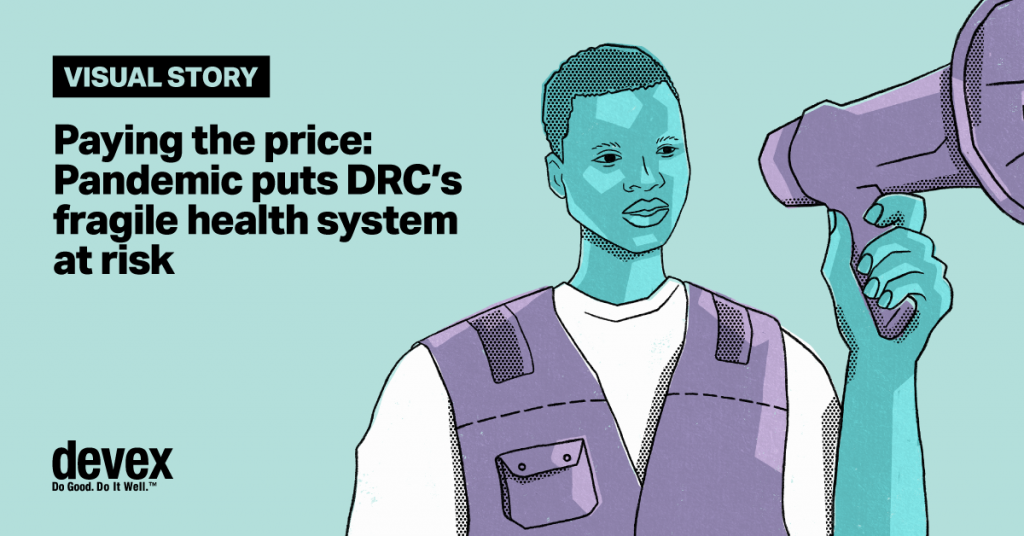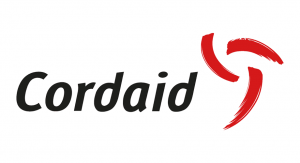We invite you to have a look a this visual story that was produced in partnership with Cordaid. The visual story is part of Devex’s content series on how health systems can function better so that health care workers are supported, protected, and empowered, Duty of Care.
—
Every morning at 5 a.m., Pacifique Mugisho Mukaba starts his day shouting into a megaphone. The 21-year-old youth ambassador is trying to help communities in the Democratic Republic of the Congo protect themselves against COVID-19 by promoting hand-washing and social distancing. But cautioning people via a loudspeaker is a far cry from the intimate community gatherings Mukaba held in the Katana Health Zone in South Kivu before the pandemic hit the country in March, when he would facilitate conversations about sexual and reproductive health and advocate against issues such as child marriage and youth pregnancy.
Mukaba also goes from door to door informing youths how they can access sexual health services. As one of 16 ambassadors working in North Kivu and South Kivu provinces for Cordaid’s Jeune S3 program in DRC, Mukaba has had to adapt his messages and approach.
Yet he worries all the added work might not be enough.
“You have to go … to more than 1 million households. … It can be hard,” Mukaba said, adding that community involvement is needed for young people to prosper. “As there is no school, there are no jobs, and there are no businesses, we are concerned that the youth might contract sexually transmitted diseases and HIV/AIDS. We will no longer have time to sensitize the whole community,” he said.
(…)
Have a look at the full visual story here. Cordaid also included an article on their own website, contributed to the story.


